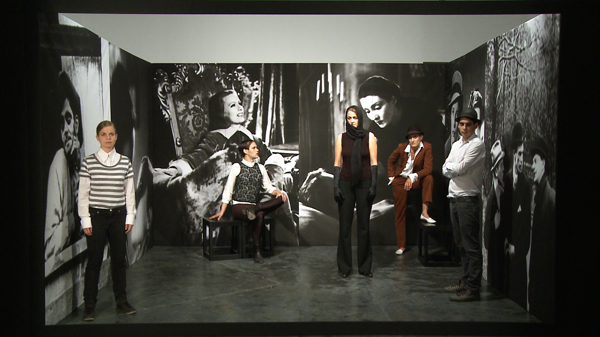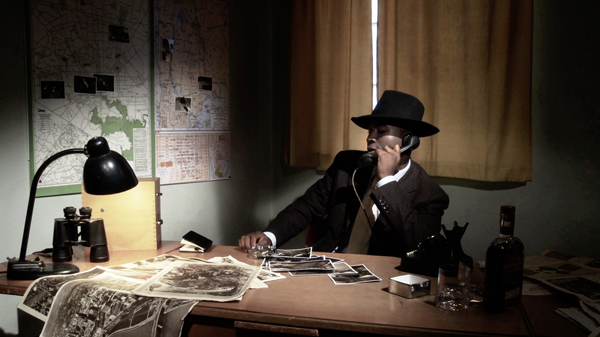Kunsthalle Exnergasse, Währinger Straße 59, 2nd Staircase, 1st Floor, 1090 Wien
19 January - 3 March 2012. Opening on 18 January, 19h.
Works in the Exhibition
Rebecca Ann Tess (D)
Rebecca Ann Tess lives and works in Frankfurt am Main. Over the past three years the main focus of her work has been on a video trilogy examining stereotypes of character presentation and narrative patterns perpetuated from one generation to the other in European and US film and TV history through the prism of queerness, friendship and critical complicity. "Gender norms have everything to do with […] who will be criminalized on the basis of public appearance." (Judith Butler) Drawing on the aesthetic typical of the respective films, she recombines filmic figures and dialogues into a non-linear narrative. She casts non-professional actors from among her friends to re-enact scenes and movie characters, agents of ambiguous gender and sexual identity who have tended to be miscontextualized due to power relations imposed by heteronormative ideology – symptomatic stereotypes that have survived generations of film production.
Dad Dracula is Dead (2009)
HD video projection, 16:9, color, English and German with English subtitles, 13 min.
Dad Dracula is Dead is the first installment of Rebecca Ann Tess's video trilogy. It looks back to the cinema of the twenties and thirties, a time of transition not only from silent film to 'talkies' but also for an increasingly regimented film industry. Although censorship codes were relaxed after World War I, there was a concurrent tendency to establish new control structures (such as the Motion Picture Production Code of 1930) to accompany the birth of film as a mass medium.
Dialogue from the movies of the time, including Anders als die Anderen, The Soilers, Mädchen in Uniform, Queen Christina, Sylvia Scarlett and Dracula's Daughter is repeated in Dad Dracula is Dead, performing a loop within this history. The characters from the films adopt the prevailing norms of living in that society, visible through their connections to and dependencies on each other.
A Crime must be Committed (2010)
HD video projection, 16:9, color, 13 min, English
Rebecca Ann Tess's film A Crime must be Committed is the second part of her video trilogy. Scenes and characters from films representing prominent genres are restaged and altered. A Crime must be Committed deals with the crime and detective genre and quotes gangster-films of the 1920s (Underworld, 1927), film noir (The Maltese Falcon, 1941), detective films (The Detective, 1968), crime thrillers (Die Hard, 1988; Shaft, 1971 and 2000), and the contemporary criminal investigation series (CSI, since 2000), among others.
"This retrospective shows how crime stories, constellations of protagonists, and their assigned roles are subject to change over time. They are the expression of different discourses in which the relationship between good and evil is renegotiated each time in the context of a new social-political situation." (Antje Krause-Wahl)
Dad Dracula is Dead (2009)
HD video projection, 16:9, color, English and German with English subtitles, 13 min.
Courtesy the artist and Figge von Rosen Galerie
A Crime must be Committed (2010)
HD video projection, 16:9, color, 13 min, English
Courtesy the artist and Figge von Rosen Galerie

